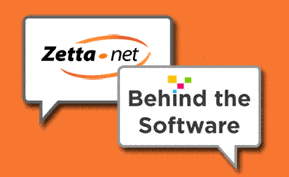Enterprise Backup
How to Choose an Enterprise Data Backup Solution

Like the hull of a ship, the walls of a fort or the vault of a bank, your business’s data should be tightly and completely secure from top to bottom. For the sake of your company and its customers, setting up a backup system for all of your data is the first step to safeguarding your business’s ability to operate sufficiently in the face of any and all circumstances.
According to the International Data Corps, the stakes of risk are high. Even though a majority of businesses continue to ignore taking any sort of precautions, if data is left exposed large organizations can lose up to an average of $80,000 per hour of downtime. Backup solutions eliminate such vulnerabilities by providing you with the reassurance that critical data will never be lost beyond a quick recovery, and improve the overall confidence and trust your employees, partners and customers will have in doing future business.
But not all cloud backup solutions are created equal. Before getting too far ahead of yourself, your business should confirm a few fundamentals to help focus and narrow your search for that backup solution your company needs. Below, we at Business-Software.com have compiled a quick checklist of things to consider as you begin to get your feet wet before taking the plunge. Let’s get started!
Location
![]() Determining whether or not your data needs to be stored on- or off-site is one of the most fundamental aspects to decide upon when choosing a data backup solution. On-site solutions typically dominate in transfer speeds, ensure sensitive data doesn’t reach locations it shouldn’t and provide lower overall costs. On the other hand, data storage solutions that hold your information remotely offer added security without the need of additional hardware, all while guaranteeing your information will be saved elsewhere in case your business’s physical location is struck by a meteor.
Determining whether or not your data needs to be stored on- or off-site is one of the most fundamental aspects to decide upon when choosing a data backup solution. On-site solutions typically dominate in transfer speeds, ensure sensitive data doesn’t reach locations it shouldn’t and provide lower overall costs. On the other hand, data storage solutions that hold your information remotely offer added security without the need of additional hardware, all while guaranteeing your information will be saved elsewhere in case your business’s physical location is struck by a meteor.
Fortunately, many of the industry’s leading data storage providers have options for both on-site and remote data storage, giving customers optimum flexibility. Be sure to check that your pick has your requirements covered in the long run.
Compatibility
![]() It might sound simple, but you need to be certain that your data backup solution is actually compatible with the software used by your business. Windows, OSX and Linux each have their own unique technical properties, so any solution you employ needs to be able to meet the specifications of your chosen operating system by design. If your company overlooks searching for compatibility first, you might end up wasting time investigating platforms that won’t properly sync with your existing architecture.
It might sound simple, but you need to be certain that your data backup solution is actually compatible with the software used by your business. Windows, OSX and Linux each have their own unique technical properties, so any solution you employ needs to be able to meet the specifications of your chosen operating system by design. If your company overlooks searching for compatibility first, you might end up wasting time investigating platforms that won’t properly sync with your existing architecture.
Additionally, it’s important to remember that data exists in many formats. When choosing the right data backup solution, it’s crucial to take a close look at all of the different data types you will want to transfer over the entire life of your new network and make sure they are supported. The best solutions will be able to transfer a wide range of data types, and will even allow users to set restrictions and retention policies on specific types of files.
Agent-Based or Agentless
![]() Data backup solutions come in two main flavors: agent-based or agentless. Agent-based solutions, also known as guest-based, exist as installations on the actual machine and stream the data you wish to be saved. While time-tested and proven, this method tends to heavily tax CPU and memory resources, and needs to be managed on each machine. Agentless solutions, on the other hand, can exist without needing to be installed on every machine, meaning backups can be created whilst on or offline while lessening the impact on CPU and memory usage. However, agentless solutions can only be employed on a completely virtualized environment. Physical machines will require the use of agents.
Data backup solutions come in two main flavors: agent-based or agentless. Agent-based solutions, also known as guest-based, exist as installations on the actual machine and stream the data you wish to be saved. While time-tested and proven, this method tends to heavily tax CPU and memory resources, and needs to be managed on each machine. Agentless solutions, on the other hand, can exist without needing to be installed on every machine, meaning backups can be created whilst on or offline while lessening the impact on CPU and memory usage. However, agentless solutions can only be employed on a completely virtualized environment. Physical machines will require the use of agents.
You might want to consider looking into the newer generation of cloud backup technology, which uses an agent-assisted (also known as host-based) method. Instead of relying on a system that exists exclusively on or off the machine, agent-assisted platforms combine agents that gather application metadata with Microsoft VSS and VMware’s VADP, which perform the actual transferring of data as in a traditional agentless option. These solutions aren’t quite as well field-tested or commonplace, but do offer the best of both worlds.
Security
![]() In the wild west of today’s criminal cyber world, preventing thieves out to steal information should be a primary focus of any backup solution that looks to take itself seriously. Before locking one in, establish that your data recovery option has industry-leading encryption, is HIPPA and FINRA compliant and offers 24/7 support to keep the paws of North Korean hackers out of your information cookie jar.
In the wild west of today’s criminal cyber world, preventing thieves out to steal information should be a primary focus of any backup solution that looks to take itself seriously. Before locking one in, establish that your data recovery option has industry-leading encryption, is HIPPA and FINRA compliant and offers 24/7 support to keep the paws of North Korean hackers out of your information cookie jar.
Disaster recovery is also an important feature to employ. It’s been reported that over 40 percent of all companies without backup solutions that experience a disaster never reopen, and more than 25 percent that do close within two years. Being able to get your business back up and running in the event of a system failure is critical to keeping your momentum and ensuring future success despite any potential setbacks. Don’t let a single fluke from Mother Nature prevent you from keeping your doors open and continuing to run a successful business venture.
Now that you know what to look for, check out our Top 10 Enterprise Cloud Backup Report to review and compare some of the industry’s best products.
[Photo courtesy of reynermedia]



